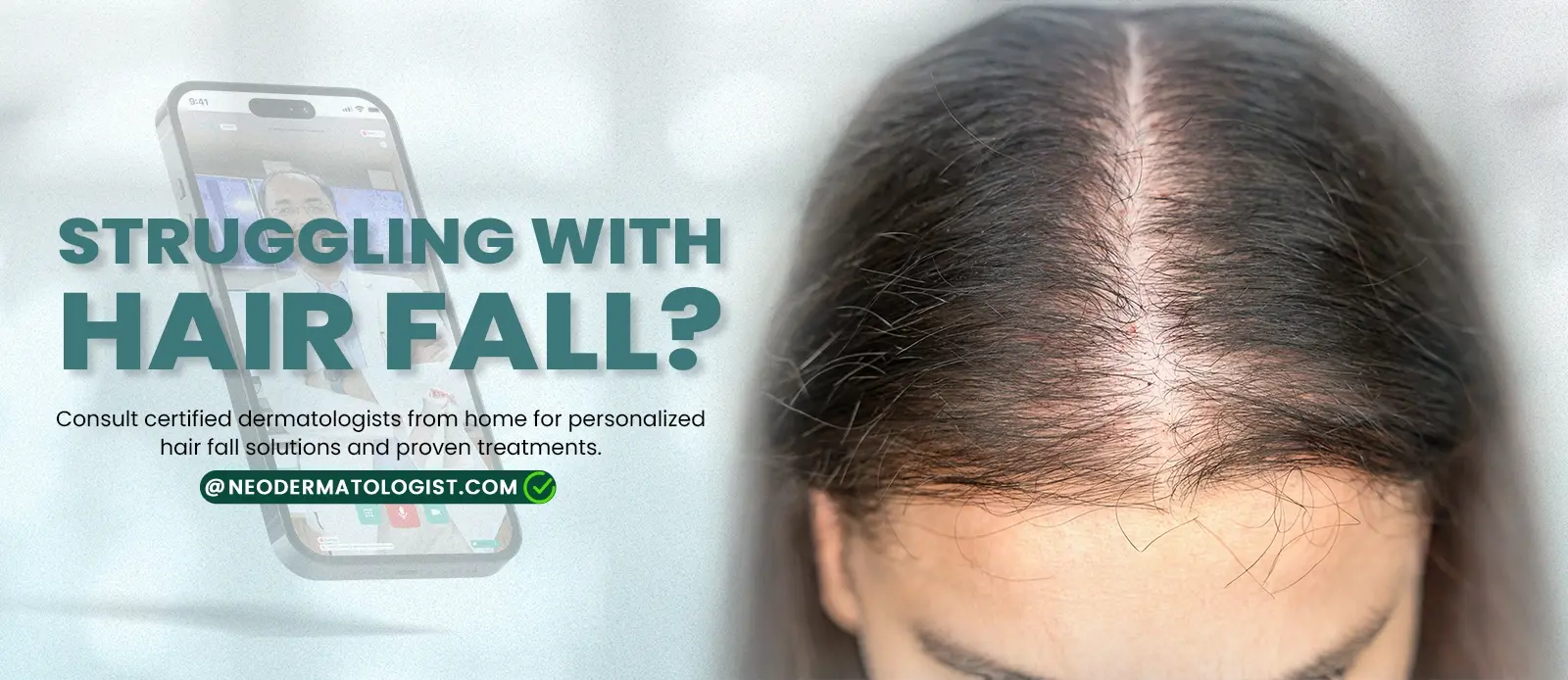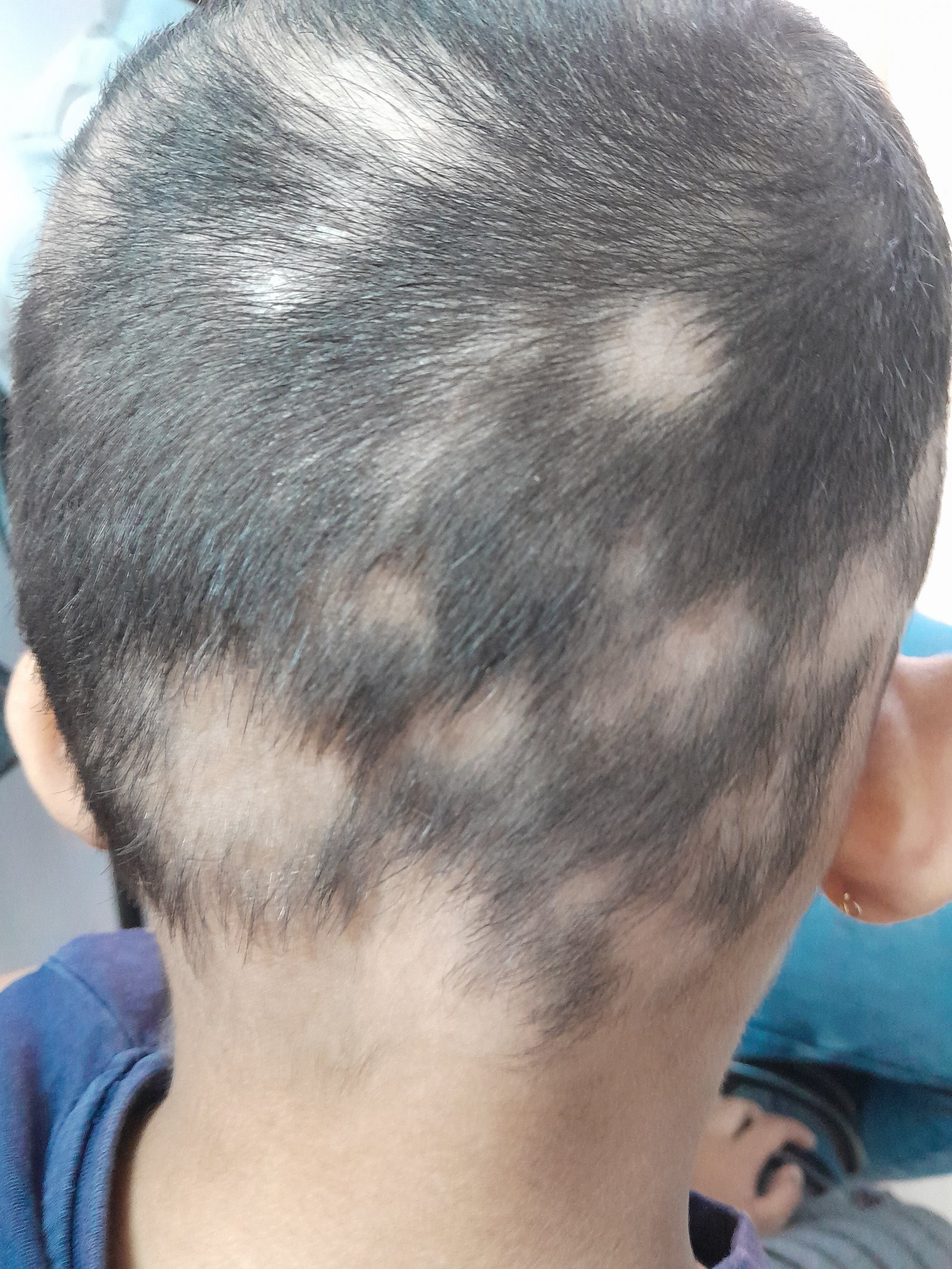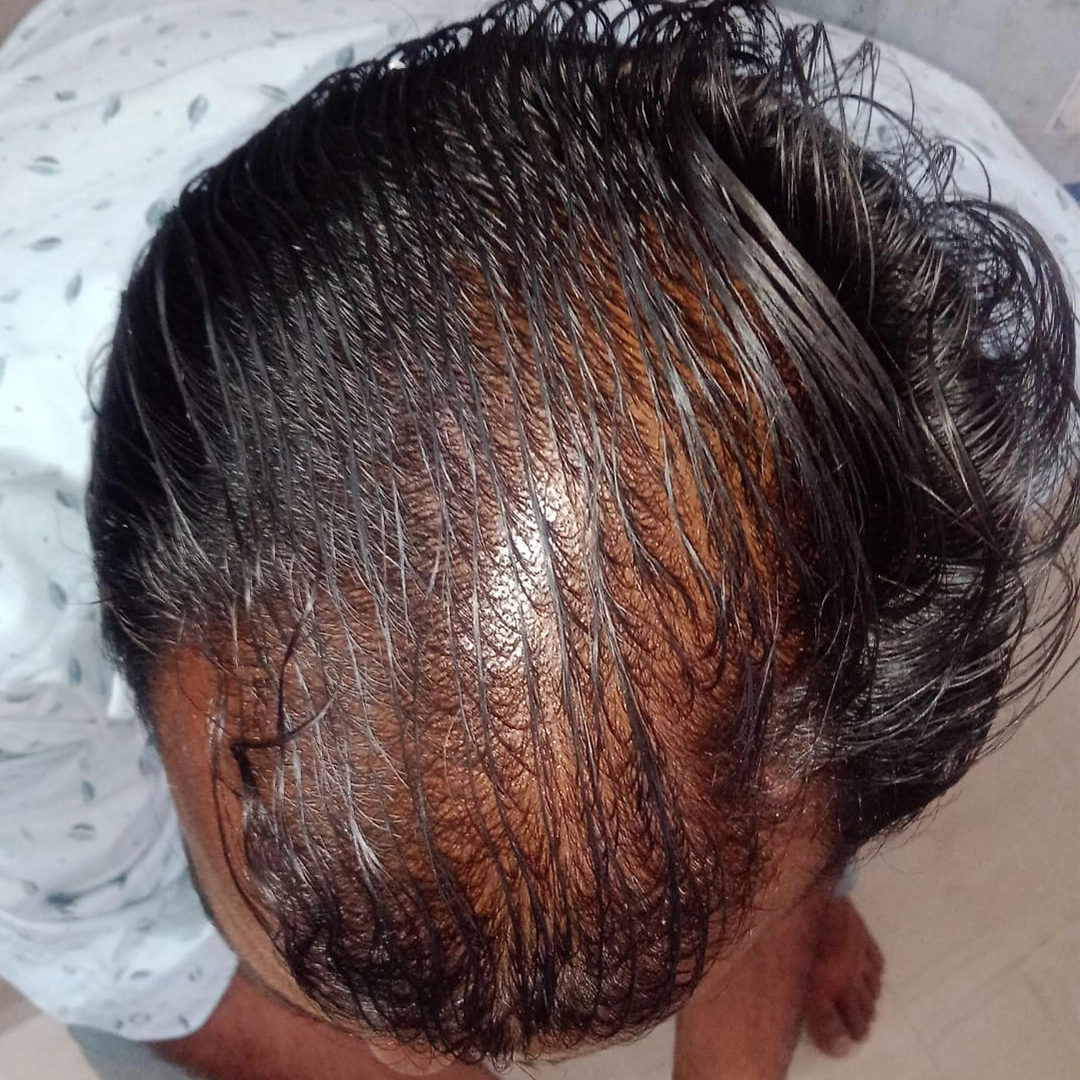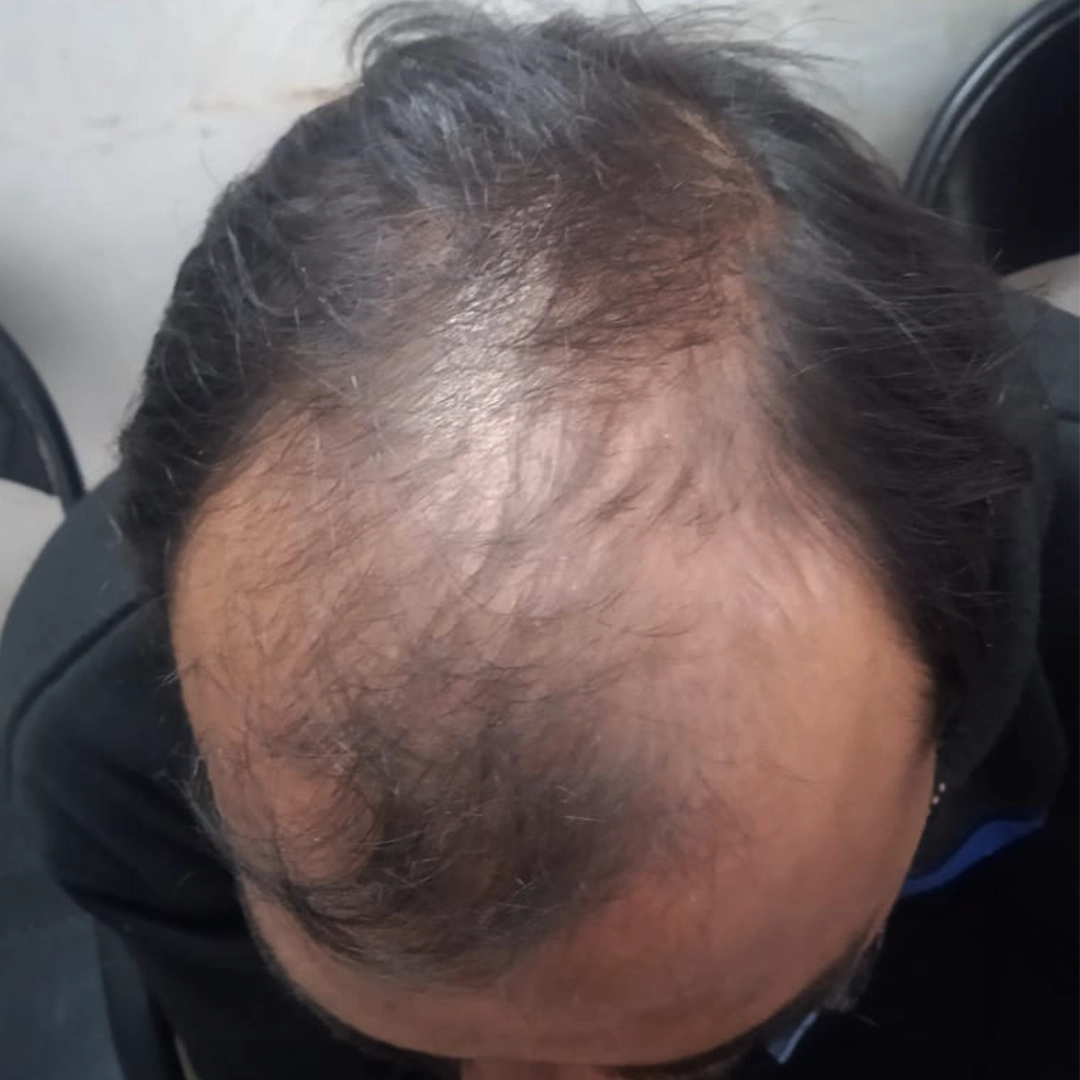Hair fall in men and women can be caused by factors such as stress, hormonal imbalance, nutritional deficiencies, genetics, and scalp conditions. With
online dermatology consultations, you can identify the exact cause of hair loss and receive expert treatment guidance from certified dermatologists from the comfort of your home.
Hair fall is a common concern that affects both men and women. It can occur due to various reasons, including:
1. Use of Chemical-Based Products: Frequent use of harsh shampoos or constantly changing hair products can damage hair and cause hair fall.
2. Post-Illness Recovery: After illnesses like malaria, dengue, or typhoid - or following hospitalization, hair fall may occur due to a weakened immune system.
3. High Stress Levels: Stress is a major factor that can trigger excessive hair loss.
4. Genetics (Heredity): This is one of the most common causes. If hair fall runs in your family, you're more likely to experience it as well.
5. Nutritional Deficiencies: Lack of essential nutrients such as iron, vitamin B12, or vitamin D can lead to weak hair and increased hair fall.
6. Excessive Smoking: Smoking can damage hair follicles and contribute to hair loss.
7. Environmental Pollution: Pollutants in the air can weaken hair and cause it to fall out prematurely.
8. Scalp Infections: Fungal or bacterial infections on the scalp can lead to hair thinning and loss.
9. Hormonal Imbalances: Changes in hormones due to pregnancy, menopause, or thyroid disorders can affect hair growth.
10. Medical Conditions: Issues like thyroid disorders, PCOD (Polycystic Ovarian Disease), and anemia can disrupt the nutrient supply to hair, leading to hair loss.
11. Side Effects of Medications: Certain medicines, especially those used for treating cancer, can cause significant hair fall.
12. Autoimmune Conditions: Medical conditions such as alopecia areata can result in sudden and patchy hair loss.
Common Symptoms Of Hair Fall in Men and Women
1. Excessive hair strands falling while combing, washing, or on the pillow.
2. Noticeable thinning of hair on the scalp.
3. Widening of the hair partition or reduced hair volume.
4. Visible bald spots or patches on the head.
5. Receding hairline, especially in men.
6. Overall, hair thinning in women without complete baldness.
7. Increased hair breakage and weak hair strands.
8. Itching, redness, or flaking on the scalp before hair fall begins.
9. Hair becoming dry, rough, or losing shine over time.
10. Slower hair regrowth or new hair appearing thinner and weaker.
The best and most important way to treat hair fall is to identify and eliminate its root cause. If you’re struggling with hair loss and searching for answers to questions like how to stop hair fall (baal jhadna kaise roke), how to prevent hair breakage (baal tutne se kaise roke), or how to control excessive hair shedding (balo ka jhadna kaise roke), then consulting a dermatologist is highly recommended.
You can get expert advice and treatment through online consultation with a dermatologist at NeoDermatologist.com. A dermatologist can help identify the underlying reason for your hair loss and recommend personalized treatment options.
Additionally, we offer free online dermatologist consultations for photographic assessments. If you’d like to learn more about our Free Online Dermatologyist Consultation, click the link to get expert advice for any skin condition directly from a certified dermatologist - absolutely free!
Click the START CONSULTATION button and complete the consultation form. Once submitted, a prescription (initially blurred) and a doctor’s video will be uploaded to your user account.
To unlock the prescription and complete your FREE consultation, click on the payment link and enter the coupon code FPCND100. After applying the code and completing the process, the prescription will become clearly visible.
Use code FPCND100 to get your FREE online dermatologist consultation instantly.
Learn in detail about the effective ways to stop hair fall:
1. Common Hair Fall Treatments
1. Topical Treatments: Dermatologists or trichologists often prescribe Minoxidil 2% or 5% lotion, which is applied directly to the scalp to stimulate hair growth and reduce hair fall.
2. Oral Medications: Tablets such as Finasteride and nutritional supplements (like biotin, iron, or vitamin D) can be effective in controlling hair fall. However, these should only be taken after consulting a qualified dermatologist.
2. Advanced Therapies
1. Laser Therapy: Used to stimulate hair follicles and improve hair density.
2. PRP (Platelet-Rich Plasma): A regenerative treatment using your own blood’s growth factors to boost hair regrowth.
3. Microneedling: Helps improve scalp health and stimulate hair follicles.
4. Hair Transplant Surgery: Recommended for those with advanced or irreversible hair loss.
If you're seeking a long-term solution to stop hair fall, expert guidance from a certified dermatologist is the safest and most effective path.
3. Tips to Prevent Hair Fall Naturally
There are several steps you can take to reduce and prevent hair fall, including:
1. Eat a Healthy Diet: Include fresh fruits, vegetables, and whole grains in your daily meals to nourish your hair from within.
2. Stay Hydrated: Drink enough water throughout the day to keep your scalp and hair healthy.
3. Manage Stress: Practice stress-reducing techniques like yoga, meditation, or regular exercise, as stress is a common cause of hair loss.
4. Get Adequate Sleep: Aim for 7–8 hours of quality sleep every night to support hair regeneration.
5. Avoid Smoking: Smoking can damage hair follicles and increase the risk of hair fall.
6. Protect from Heat: Avoid direct sun exposure and minimize the use of heating tools like straighteners or blow dryers on your hair.
7. Use the Right Hair Products: Always choose hair care products that are suitable for your specific hair type.
4. Home Remedies for Hair Fall (Beliefs and Practices)
Some people believe that natural remedies may help reduce hair fall. Popular home remedies include:
1. Coconut Oil: Believed to strengthen hair and reduce hair fall due to its moisturizing and nourishing properties.
2. Aloe Vera: Like coconut oil, many believe aloe vera helps strengthen hair and prevent hair thinning.
3. Fenugreek (Methi): Used in traditional practices as a remedy believed to support hair health.
Note: While these home remedies are commonly used, it's important to understand that there is no quick fix for hair loss. It may take several months of consistent treatment to see visible results.
At NeoDermatologist, our team of certified dermatologists provides expert online consultation to treat hair fall and hair thinning effectively. Whether you're dealing with sudden hair loss or chronic shedding, consult with a qualified
nearest hair specialist online at NeoDermatologist.com and get personalized treatment from the comfort of your home.
Don’t ignore the early signs of hair loss - prompt consultation can help prevent further damage.
Worried about excessive hair fall or bald patches?

 Hin
Hin En
En




























Comments
Riddhi Patel
Great article! Hair fall seems so common these days, and your tips are really clear and helpful. I recently realized my thinning hair might be due to alopecia androgenetica, so I’ve started looking into alopecia androgenetica treatment online. This post gave me a much better understanding of how lifestyle and scalp care can make a difference.
Nirmal Kumar
Humara Baal jhadata hai
Vartika Maheshwari
Thanks for sharing such helpful tips! Kari patta oil, aloe vera, aur methi beej jaise natural remedies easily try kiye ja sakte hain. Agar home remedies se farak na pade toh aapke dermatologist se online consultation lena bhi ek smart option hai. Appreciate the info!
सीमा पटेल
बहुत ही उपयोगी जानकारी है। आजकल बाल झड़ने की समस्या बहुत आम हो गई है और आपने घरेलू उपायों से लेकर डॉक्टर की सलाह तक सब कुछ अच्छी तरह समझाया है। मैं जरूर इसे फॉलो करूंगी। धन्यवाद!
Nisha Chauhan
This is a really informative and practical post on how to stop hair fall. I appreciate the detailed explanation about common causes like stress, poor diet, and scalp infections. The tips on maintaining scalp hygiene and using mild, dermatologist-recommended products are very helpful.
Post a comment